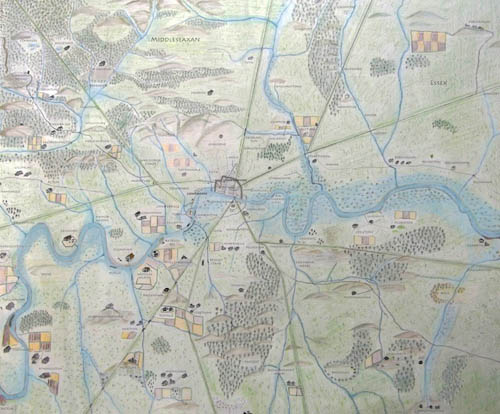 What's in a 'British' Place-name?
What's in a 'British' Place-name?
If you are a teacher you may find the finder helpful in devising lessons for Year 4 / Key Stage 2 (KS 2) Place Name Origins. This finder enables students to take a deeper look into the origins of place names for many of the UK's villages and towns today. Students can get practical experience of using maps and using them to locate places that have an early settlement origin. This can be done by performing a wildcard search for places ending in elements associated with early settlement in the UK, such as *borough, *by, *don, *chester, *stow, *wick, *wick etc. Students will also be able to see the meanings of these early place names alongside the place-name lists. The facility is ARCHI subscription-free too!
Historical alternatives to the place names entered, such as what the place was known as in the Domesday Book (1086), are listed in the results pages. There is also a built-in place-name element interpreter which will give a meaning of the elements recognised in the place-name entered.
Place-name Structure
British place-names (actually most worldwide place names), are usually constructed from two or more elements see (List of English place-name meanings). One element might be an old personal name (eg Balham, (Baela's Homestead), while the others might refer to a local geographic feature or to an early function of the place (eg Chipping Norton, Market North Town). Place-names are often used in archaeology and history as clues to locate sites of archaeological and historic interest and are also helpful in understanding the development of the English Language.
Place-names, Genealogy and Family History
Regarding place-name genealogy and family history studies, approximately 30% of modern British surnames / family names are derived from place-names. These are known as toponymic / topographic surnames and may, in some cases, refer to a family's place of origin.
Use the search form above to if your surname matches to a British Place-name. It may help see where your ancestors might have come from.
 Archaeologically Significant Place-names
Archaeologically Significant Place-names
 Surnames / Family Names
Surnames / Family Names
 Place-names and the Development of the English Language
Place-names and the Development of the English Language
 Place-Name Searches Available
Place-Name Searches Available
